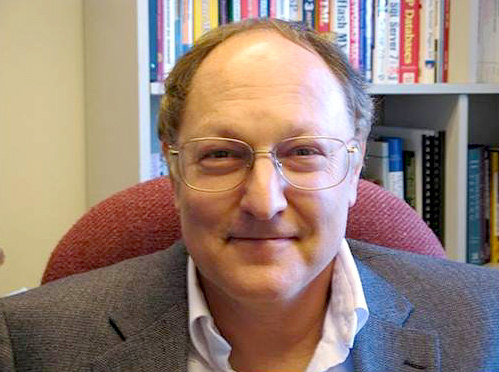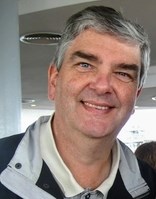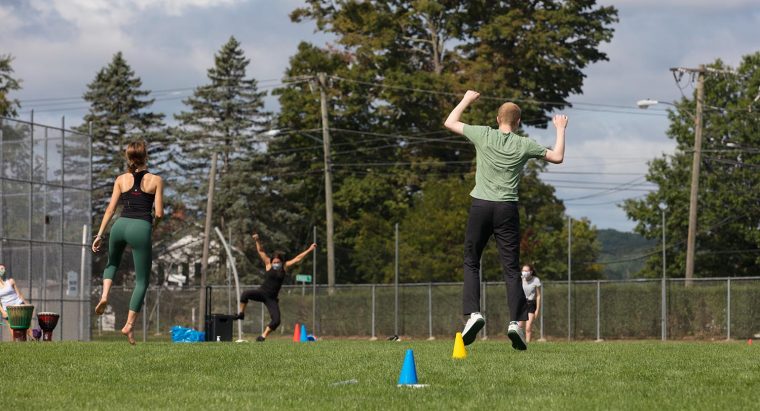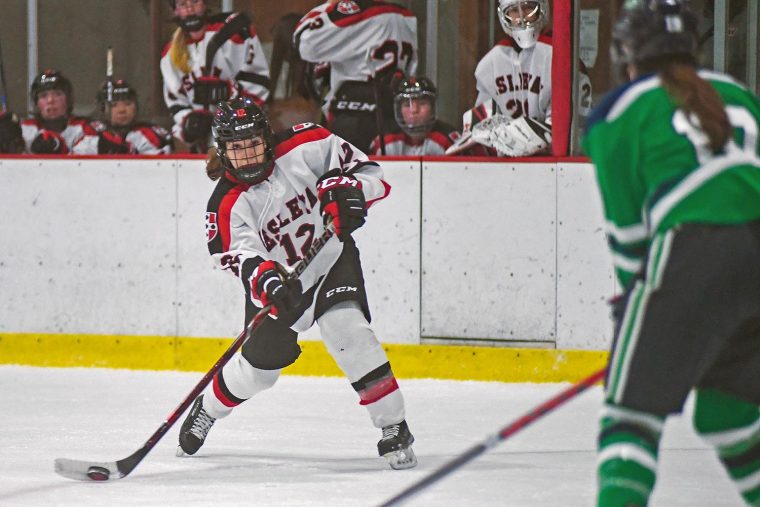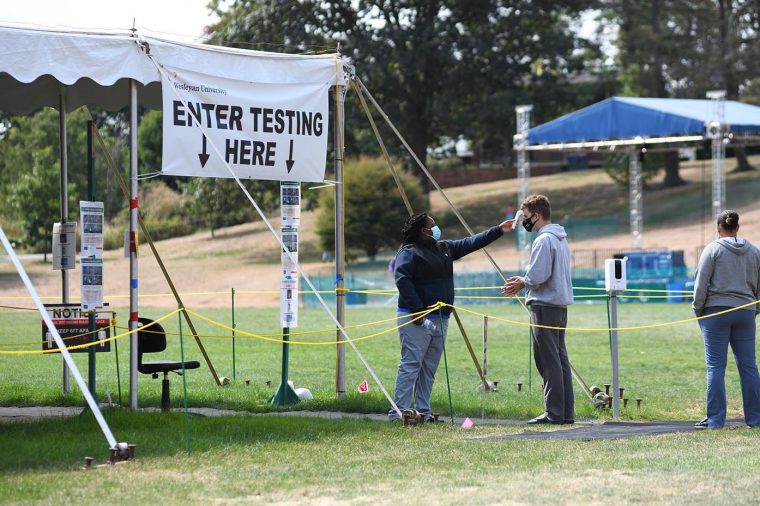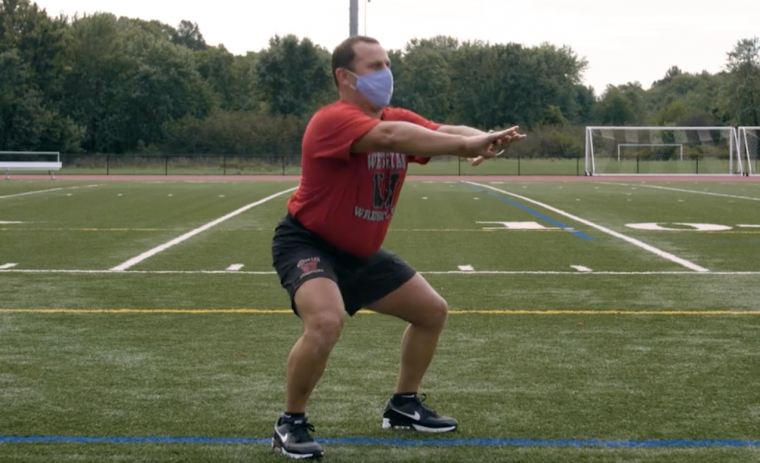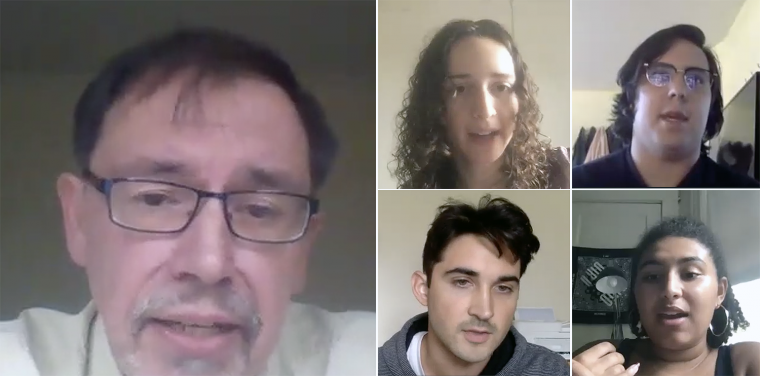When the COVID-19 outbreak disrupted in-person classes last spring, several faculty found innovative and creative ways to adapt to online teaching and learning. In the fourth of a fall-semester series, we’ll be highlighting ways faculty from various departments are coping with teaching during a pandemic, and showcase individual ways courses are thriving in an in-person, online, or hybridized environment. In this issue, we spotlight Robert Kabacoff, professor of the practice in the Quantitative Analysis Center. This fall, he's teaching QAC 201: Applied Data Analysis; QAC 356: Advanced R: Building Open-Source Tools for Data Analysis; and QAC 385: Applications of Machine…
The COVID-19 pandemic drastically affected the way faculty teach, students learn, and staff work to help the University. In this article, we spotlight Linda Hurteau, Science Library assistant, who has helped make the library a safe environment for patrons and staff alike. The once busy and bustling Science Library, which stays open until 2 a.m. to accommodate those who study late into the night, is open for service this fall semester. However, the pandemic has drastically changed the way students interact with and use the library. And no one knows this better than Science Library Assistant Linda Hurteau, a 16-year…
Sean Higgins, Wesleyan's Lock Shop foreman, passed away suddenly on Sept. 25. He was 60 years old. Higgins worked for Wesleyan's Physical Plant for 16 years maintaining the physical security of the campus where he insured the safety of students, faculty, and staff. According to his obituary in The Middletown Press, Higgins "showed his love in the form of full-body hugs, homemade pasta sauce, big family breakfasts, and a shared Guinness, no matter the time of day. He loved to hate the New York Giants, indulged in bad action films, and never turned down helping someone in need. His quick…
As organisms evolve over time, changes in size—both miniaturization and gigantism—are a major theme. In fish, which are the specialty of Barry Chernoff, the Robert Schumann Professor of Environmental Studies, Professor of Biology and of Earth & Environmental Sciences, miniaturization happens in many lineages, though it’s not very common. Evolutionary biology has long held that this miniaturization is often accompanied by developmental simplification or paedomorphisis (becoming sexually mature while appearing juvenile-like). Last March, just before the pandemic began, Chernoff and students in his Tropical Ecology course (ENVS/Bio/E&ES 306) took a trip to the University of Michigan in Ann Arbor, Mich.,…
When the COVID-19 outbreak disrupted in-person classes last spring, several faculty found innovative and creative ways to adapt to online teaching and learning. In the third of a fall-semester series, we’ll be highlighting ways faculty from various departments are coping with teaching during a pandemic, and showcase individual ways courses are thriving in an in-person, online, or hybridized environment. In this issue, we spotlight Katja Kolcio, associate professor of dance and director of the Allbritton Center. Kolcio also is a core faculty member of the College of the Environment, Environmental Studies, and Russian, East European and Eurasian Studies Programs at…
Hannah Docter-Loeb '22, a features editor at The Wesleyan Argus, participated in a public discussion about the intersection of D.C. statehood and racial justice Sept. 18. The "Panel on D.C. Statehood and Racial Justice" was hosted by Georgetown Students for D.C. Statehood and featured Docter-Loeb; Anthony Cook, professor of law at Georgetown University; Jamil Scott, assistant professor of government at Georgetown University; and Cosby Hunt, adjunct professor at the University of the District of Columbia and senior manager of social studies education at the Center for Inspired Learning. Docter-Loeb, a D.C. native, was invited to be a panelist after writing…
On Sept. 16, the Literary Arts Emergency Fund awarded Wesleyan University Press with a $25,000 grant to help with its financial losses due to the COVID-19 pandemic. The Literary Arts Emergency Fund is administered by the Academy of American Poets, the Community of Literary Magazine and Presses, and the National Book Foundation. Wesleyan is among 282 nonprofit literary arts organizations, magazines, and presses across the nation that are receiving part of the $3,530,000 million in emergency funding. “We are delighted and grateful to receive this support from the Literary Arts Emergency Fund. So much in the world is difficult right…
Although many amendments have been ratified since the first election in this country more than 230 years ago, the simple fact remains: Voting is a right and a privilege. With just 46 days (upon the publishing of this article on Sept. 18), remaining until Election Day 2020, Audrey McMahon ’22 of the Wesleyan women’s ice hockey team has set an ambitious goal: to get 100% of eligible student-athletes registered and pledged to vote. McMahon has taken on the role of Wesleyan’s resident ambassador for Voice in Sport (VIS), a nonprofit advocacy group dedicated to supporting women student-athletes. In an initiative…
Following a carefully coordinated return to campus and an initial period of remote learning during Connecticut's mandated two-week quarantine, just two students and three employees at Wesleyan have tested positive for COVID-19 to date this fall. The low positivity rate, well under 0.1% of the entire campus population and tracked regularly on Wesleyan's COVID-19 dashboard, reflects the care and planning that have gone into preparing the campus for the fall semester, as well as commendable adherence to safety protocols by the Wesleyan campus community. More than 15,000 tests have already been conducted. "Our positivity rate on campus is lower than…
In this video, Wrestling Head Coach and Strength and Conditioning Coach Drew Black suggests exercises for the lower body, upper body, and core. "Whether we're inside our dorm room or outside on campus, here are some opportunities to take care of your mind and take care of your body and get some exercise in," he said.
When the COVID-19 outbreak disrupted in-person classes last spring, several faculty found innovative and creative ways to adapt to online teaching and learning. In the second of a fall-semester series, we'll be highlighting ways faculty from various departments are coping with teaching during a pandemic, and showcase individual ways courses are thriving in an online or hybridized environment. In this issue, we spotlight Peter Rutland from the Government Department. Peter Rutland, the Colin and Nancy Campbell Professor in Global Issues and Democratic Thought, professor of government, is teaching GOVT 157: Democracy & Dictatorship and GOVT 278: Nationalism this fall. He's…
Several remote teaching and learning "success stories" are now published on the Office for Faculty Career Development's (OFCD) Teaching Matters website. "We hope the stories inspire others to make changes and make it clear to everyone that it was possible to make the transition well," said Mary Alice Haddad, the John E. Andrus Professor of Government and director of the OFCD. The stories are based on surveys administered by Academic Affairs last spring. Although there were many courses that went well in spring 2020, Haddad selected to present a diversity of courses drawn from different class sizes, pedagogy styles, synchronous/asynchronous…


